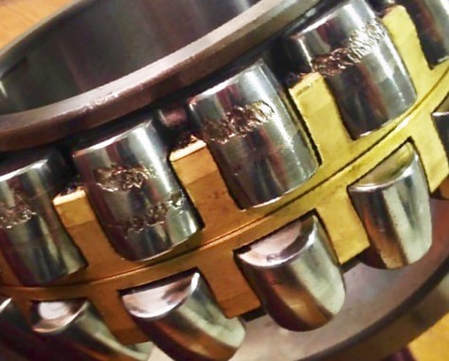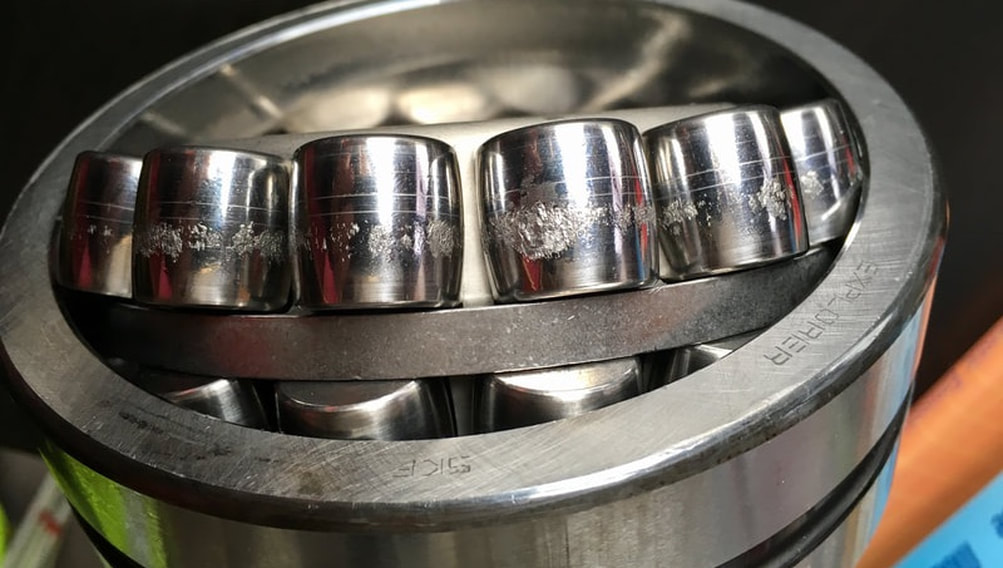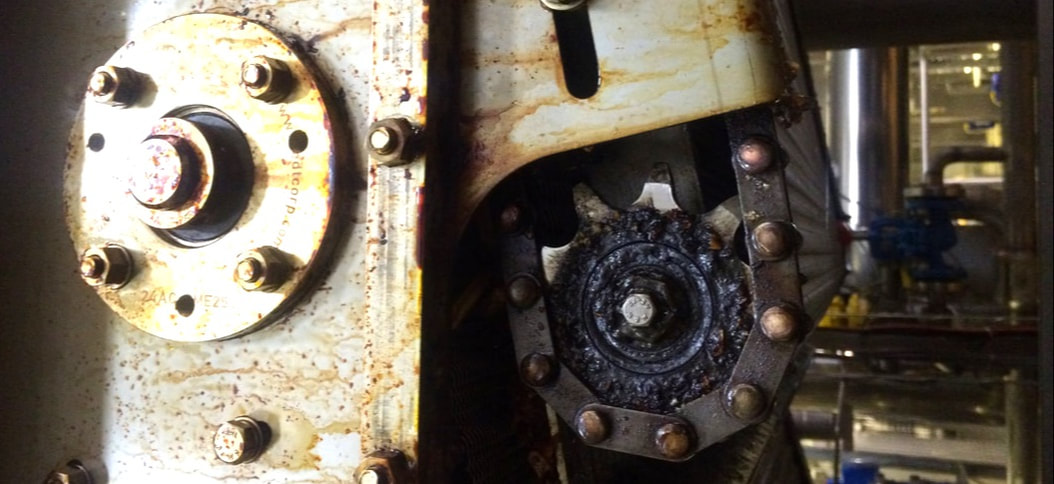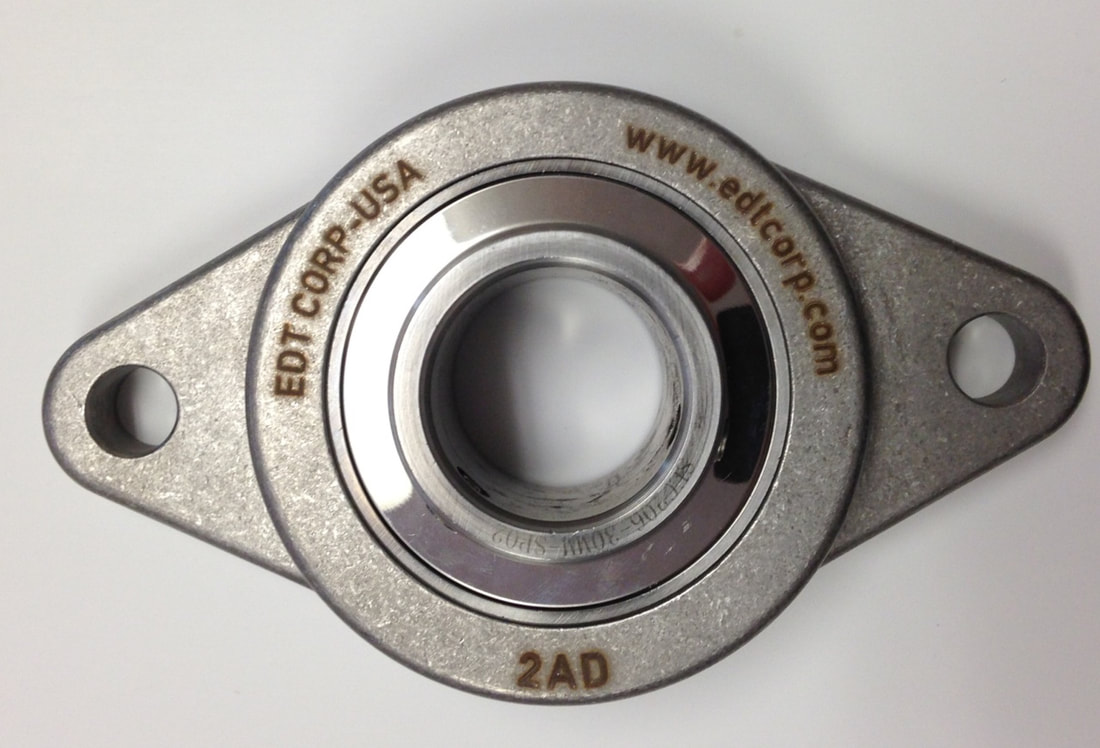Bearings
Found in millions of assets and a common failure point, Uptime Consultant loves Bearings and eliminating their failure modes
If you are interested in asset reliability then you should be interested in Bearings.
Mechanical equipment employs many different types and standard of bearing depending on load, speed and other environmental factors.
They are so ubiquitous in engineered products that they often getting ignored, abused or mistreated, a similar story to lubrication.
Because of this many see bearings as 'consumables' to be changed out when failed, then rinse and repeat!
It shouldn't be this way, by taking a proactive approach from the design phase, through quality controlled installation, with ongoing asset care these important items can enjoy an extended life cycle.
Sometimes the operating context is unclear to the OE manufacturer, when this happens the new asset can experience premature breakdown if the bearings specified do not fit the equipment use.
There are solutions out there and I make it part of Uptime Consultants holistic method to find solutions for clients.
If you would like to know more you can contact me HERE where we can discuss your bearing issues.
Mechanical equipment employs many different types and standard of bearing depending on load, speed and other environmental factors.
They are so ubiquitous in engineered products that they often getting ignored, abused or mistreated, a similar story to lubrication.
Because of this many see bearings as 'consumables' to be changed out when failed, then rinse and repeat!
It shouldn't be this way, by taking a proactive approach from the design phase, through quality controlled installation, with ongoing asset care these important items can enjoy an extended life cycle.
Sometimes the operating context is unclear to the OE manufacturer, when this happens the new asset can experience premature breakdown if the bearings specified do not fit the equipment use.
There are solutions out there and I make it part of Uptime Consultants holistic method to find solutions for clients.
If you would like to know more you can contact me HERE where we can discuss your bearing issues.
Thermal video clip of EDT Corp Bearing Test Rig
Video captured with FLIR One on iPhone of extended lifecycle testing on a visit to EDT Corp headquarters in Vancouver WA
EDT Corp kindly invited Uptime Consultant Ltd to visit their manufacturing headquarters in Vancouver, Washington State back in 2016.
It was great to witness the dedication and knowledge that goes into producing these innovative bearings and housings.
I first specified an EDT product about ten years ago when I worked at a PepsiCo facility, that resulted in multiple savings.
They not only removed fixed PM lubrication tasks saving labour, but also removed unplanned downtime completely from some very critical assets that were prone to major collateral damage and product recalls with failing standard bearings.
Please get in touch to have a chat about your bearing issues I can explain the proven return on investment in a case study I produced.
Hit the BEARING HELP or ASK UPTIME buttons to send me an email.
Uptime Consultant & EDT Corp Bearing Solutions
I produced a series of UPTIME Consultant videos showcasing the bearing solutions that EDT Corp manufacture.
The idea is to help people with issues and make people question why they are still persevering with items not fit for purpose.
Environment plays a large part in the reliability of assets and bearings play a huge part in that story.
Please read the case study below the video clip that explains the cost benefits in practice.
The idea is to help people with issues and make people question why they are still persevering with items not fit for purpose.
Environment plays a large part in the reliability of assets and bearings play a huge part in that story.
Please read the case study below the video clip that explains the cost benefits in practice.
Lube free Polymer solution from EDT Bearings
If standard greased bearings are not fit for purpose why not invest in a polymerised solution?
Preventing Losses through Bearing Failures
Bearings in process areas operate in some of the most extreme environments that equipment has to withstand, their fine tolerances and moving elements can be prone to early failure even when they are well maintained to the manufacturers specifications.
Only 1% of all bearings will reach the end of their designed lifetime and the other 99% will fail in random events, all the more reason to make sure our bearings can withstand all the rigours of the process environment.
Original equipment manufacturers specify bearings that prove to be unreliable over time, not due to their design function but by the environment that they have to perform in. Equipment manufacturers are working with cost constraints and usually can't dwell too long over the overall reliability of bearings, unfortunately bearings are sometimes regarded as consumables!
In operation if our Fryer or Oven has a collapsed bearing during production this has little or no impact on the equipment manufacturer, but now we have a big problem with the production schedule and customer. I have previously worked out a cost study and the benefits involved are multiple, labour, missed production, product cross off, quality issues, waste streams, utility and ingredient loss, reactive labour required to repair, safety issues in reactive work, permit to work, the list goes on, oh and I hope you retrieve all those missing bearing parts!
Original equipment manufacturers specify bearings that prove to be unreliable over time, not due to their design function but by the environment that they have to perform in. Equipment manufacturers are working with cost constraints and usually can't dwell too long over the overall reliability of bearings, unfortunately bearings are sometimes regarded as consumables!
In operation if our Fryer or Oven has a collapsed bearing during production this has little or no impact on the equipment manufacturer, but now we have a big problem with the production schedule and customer. I have previously worked out a cost study and the benefits involved are multiple, labour, missed production, product cross off, quality issues, waste streams, utility and ingredient loss, reactive labour required to repair, safety issues in reactive work, permit to work, the list goes on, oh and I hope you retrieve all those missing bearing parts!

I have experience of issues like this in the past and when confronted with it always asked why?
Why does this happen?
Why do people put up with it?
Why is it acceptable?
Why can't we eradicate the failures?
Some say, "this is something that happens and we make sure we have bearings in stock to hand". Remarkable!
One problem was that the true cost of an incident wasn't known, no one had ever looked at it, they knew it was painful, it cost time and money, but they were in 'fire fighting' mode winning the battle but losing the war. When the 'heroes' of the day were finished they were rewarded again for saving the plant!
This was bizarre, so I set about finding a solution starting with the CMMS, then operators, maintenance, production, procurement and planning. Some were frustrated whilst others just accepted it as par for the course.
I learnt that there were multiple issues that caused fryer bearings to collapse, some were due to caustic used in sanitation, failed seals, lack of lubricant, wrong grease, planned maintenance (PM), production schedules, excess heat, debris, incorrect parts, poor assembly or alignment; most of the problems though were due to environment. If I could fix that one failure mode we may have a winner.
I could also target the other issues at the same time by removing or editing the PM instructions to give precise information.
The OEM specified bearings were acceptable until the environmental issues impacted, then the lifespan became much reduced. Unplanned interventions to get the production line back up quickly introduced more issues that adversely effected the reliability.
Why does this happen?
Why do people put up with it?
Why is it acceptable?
Why can't we eradicate the failures?
Some say, "this is something that happens and we make sure we have bearings in stock to hand". Remarkable!
One problem was that the true cost of an incident wasn't known, no one had ever looked at it, they knew it was painful, it cost time and money, but they were in 'fire fighting' mode winning the battle but losing the war. When the 'heroes' of the day were finished they were rewarded again for saving the plant!
This was bizarre, so I set about finding a solution starting with the CMMS, then operators, maintenance, production, procurement and planning. Some were frustrated whilst others just accepted it as par for the course.
I learnt that there were multiple issues that caused fryer bearings to collapse, some were due to caustic used in sanitation, failed seals, lack of lubricant, wrong grease, planned maintenance (PM), production schedules, excess heat, debris, incorrect parts, poor assembly or alignment; most of the problems though were due to environment. If I could fix that one failure mode we may have a winner.
I could also target the other issues at the same time by removing or editing the PM instructions to give precise information.
The OEM specified bearings were acceptable until the environmental issues impacted, then the lifespan became much reduced. Unplanned interventions to get the production line back up quickly introduced more issues that adversely effected the reliability.
My conclusion was that the standard lubricated bearings were not fit for purpose. Lack of lubrication over long periods in high temperatures were the killer, I searched for a no-lube or solid lube solution. I located a manufacturer that were remanufacturing standard bearings, engineering them with plain polymer inserts or filling the grease void with high temperature polymer. EDT Corp is a Washington State based manufacturer that was purchased by Timken Bearings in late 2016.
Additional cost was going to be involved, so I set about selling the benefits to the Engineering and Maintenance Managers; they agreed to a trial so I ordered a complete set to retro fit them into a hot oil fryer.
EDT Corp guaranteed 18 months between bearing changes, from the cost benefit I ran just one fryer bearing failure avoided would more than pay for the set of components; there were more than two per annum.
After the installation I removed multiple PMs including re-greasing and edited the instructions to be more descriptive.
Reducing expensive food grade grease use was one cost saving, with labour savings and unplanned downtime also.
What I needed now was to share this with all shifts and maintenance personnel so they knew to monitor this fryer and report back any issues at the PM inspections. None were reported, I planned a full bearing change at 18 months; due to production demand this was pushed out to 21 months. This was on the most critical fryer in production.
EDT Corp guaranteed 18 months between bearing changes, from the cost benefit I ran just one fryer bearing failure avoided would more than pay for the set of components; there were more than two per annum.
After the installation I removed multiple PMs including re-greasing and edited the instructions to be more descriptive.
Reducing expensive food grade grease use was one cost saving, with labour savings and unplanned downtime also.
What I needed now was to share this with all shifts and maintenance personnel so they knew to monitor this fryer and report back any issues at the PM inspections. None were reported, I planned a full bearing change at 18 months; due to production demand this was pushed out to 21 months. This was on the most critical fryer in production.
After the planned change I retrieved all the used bearing inserts, noted the locations they came from then removed the shields to examine the internals; all were in excellent condition with plenty of life left.
This study lead to the refitting of another fryer that had also experienced major unplanned downtime due to bearing failures.
Confidence was high now that the payback was justified.
PMs on each fryer was cut by 40 hrs per year and the food grade lubricant spend reduced by £400 per fryer, stock holds were reduced, confidence increased as operations became convinced that service levels would not be impacted by further bearing failure issues.
I continued to track the reliability of all fryer bearings, the first fryer had a second refit four and a half years later with no unplanned interventions due to bearing failures.
Subsequent talks between production, engineering, projects and the manufacturers took place; after much discussion EDT Corp bearings were specified as an OEM part installed on subsequent fryers.
Tracking the reliability over many years this bearing solution delivered over 23 years in total of reliable service across many critical assets, a remarkable achievement. Fryer breakdowns became a rare and unexpected occurrence.



